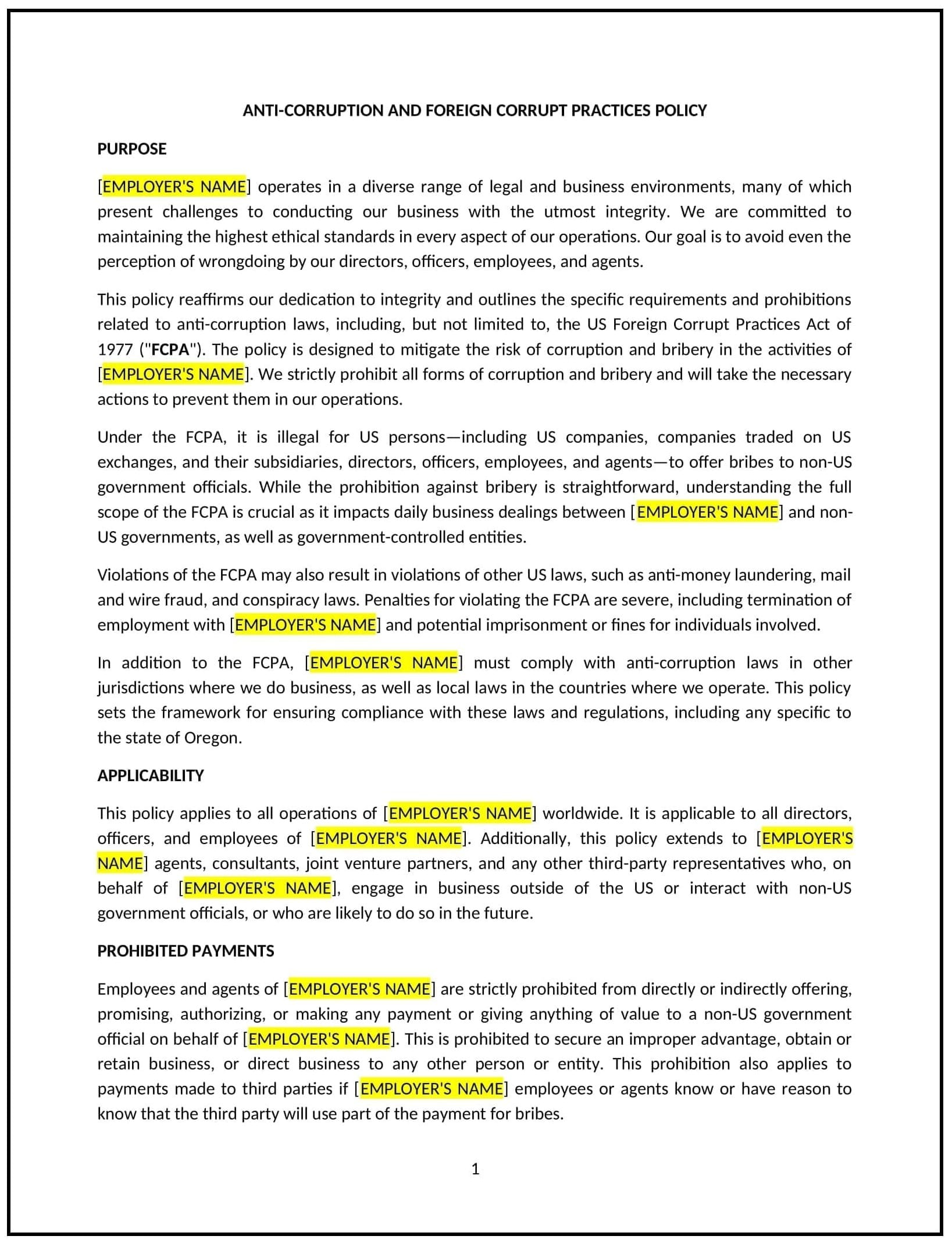Anti-corruption and foreign corrupt practices policy (Oregon): Free template
Got contracts to review? While you're here for policies, let Cobrief make contract review effortless—start your free review now.

Customize this template for free
Anti-corruption and foreign corrupt practices policy (Oregon)
This anti-corruption and foreign corrupt practices policy is designed to help Oregon businesses establish guidelines for preventing corruption and complying with anti-bribery laws. It outlines procedures for ethical business practices, reporting violations, and maintaining transparency.
By adopting this policy, businesses can reduce risks, maintain ethical standards, and protect their reputation.
How to use this anti-corruption and foreign corrupt practices policy (Oregon)
- Define prohibited practices: Clarify what constitutes corruption, such as bribery, kickbacks, or improper gifts.
- Establish reporting procedures: Outline steps for employees to report suspected violations, including anonymous reporting options.
- Address consequences: Specify penalties for violating the policy, such as warnings, suspension, or termination.
- Provide training: Educate employees on anti-corruption laws, ethical business practices, and the importance of compliance.
- Monitor compliance: Regularly review business practices to identify and address potential risks.
- Review and update: Assess the policy annually to ensure it aligns with evolving business needs and legal requirements.
Benefits of using this anti-corruption and foreign corrupt practices policy (Oregon)
This policy offers several advantages for Oregon businesses:
- Reduces risks: Helps businesses avoid penalties, fines, and legal issues related to corruption.
- Maintains ethical standards: Demonstrates a commitment to ethical business practices and transparency.
- Protects reputation: Builds trust with customers, partners, and regulatory authorities.
- Enhances trust: Shows employees and stakeholders that the business values integrity and accountability.
- Aligns with best practices: Offers a structured approach to managing anti-corruption efforts.
Tips for using this anti-corruption and foreign corrupt practices policy (Oregon)
- Communicate the policy: Share the policy with employees and include it in the employee handbook.
- Provide training: Educate employees on anti-corruption laws, ethical business practices, and the importance of compliance.
- Monitor compliance: Regularly review business practices to identify and address potential risks.
- Address issues promptly: Take corrective action if violations are identified, ensuring consequences are enforced.
- Update regularly: Assess the policy annually to ensure it aligns with evolving business needs and legal requirements.